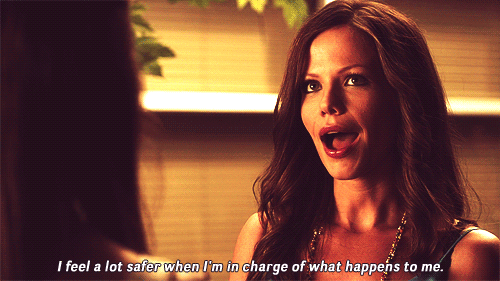We need you to stand with us at the Supreme Court on March 25 to preserve contraceptive access for millions of women. (If you can’t come, you can still sign on to our petition on Change.)
The ACA birth control benefit requires insurance companies to cover FDA-approved contraceptives in all plans, meaning millions of women who receive their health insurance through their employers are now receiving birth control pills, IUDs, and emergency contraception without having to pay copays, coinsurance, or deductibles. But on March 25, the Court will hear arguments from two for-profit companies challenging expanded contraceptive access in the ACA – and then rule on whether women should make their own personal decisions about their birth control or whether their bosses should decide.
These are just 25 reasons why women need access to birth control.
1. Women need help paying for birth control: 34% of American women voters report having not been able to afford contraception consistently at some point during their lives.

2. That number jumps to 55% of young women, who are the most likely to be unable to consistently afford birth control.

3. If insurance covers medications like Viagra, why shouldn’t they be helping those women access birth control?
4. Sex is a normal part of many individuals’ relationships, and they should have access to contraception and safe sex resources – no questions asked.

5. Virtually all (99%) American women between the ages of 15 and 44 who are sexually active have used birth control at some time.

6. Also, not everyone has a choice when it comes to having sex – which makes it even more important that women have a say when it comes to getting pregnant.
7. Women should be able to control what happens to their bodies.

8.Unsurprisingly, teenagers who do not use a contraceptive method are twice as likely to become teen mothers as those who use a method.



11. Women who become prematurely pregnant are less likely to finish school.


13. They may also face health complications due to pregnancy.

14. Allowing women to space out pregnancies effectively lowers infant mortality, maternal mortality, preterm labor, and miscarriages.

15. Preventing unintended pregnancies is also a surefire way to reduce the need for abortion procedures, which can be costly and hard to access as well.

16. Unintended pregnancies cost the government millions of dollars.

17. Preventing those pregnancies? It saves millions more than it costs.

18. Birth control isn’t just about preventing pregnancy, though. It’s also used to treat a number of significant health conditions – including ovarian cysts, endometriosis, pelvic inflammatory disease, uterine fibroid tumors, abnormal bleeding and anemia.

19. In fact, 58% of women who use birth control use either exclusively for non-contraceptive purposes or for a combination of contraceptive and non-contraceptive purposes.

20. And 14% of oral contraceptive users—1.5 million women—rely on this method exclusively for non-contraceptive purposes.

21. Access to contraception is also linked to economic opportunity, financial stability, better mental health, healthier romantic relationships, and children’s well-being.


23. Women with access to birth control actually earn up to 40% more than women who don’t.

24. But all that aside, a woman’s right to privacy extends to contraceptive usage–which means no one should have the right to tell a woman she can’t use birth control.
25. And since rights mean nothing if a person can’t exercise them, it only makes sense that we insist on insurance coverage for contraception.

























No boss is going to inhibit MY access to health care! I will not tolerate it.
It is a fundamental violation of human rights for an employer to decide if an employee may or may not have access to birth control health care, when such care may be impeded or unavailable otherwise. Men and women, religious adherents or not, are able to decide for themselves if and when they need procreative health care, and such decisions must not be made by a third party if personal human rights are also to be upheld.
If you don’t help the women, that says to me that you want the poverty, birth rate, and oppression to soar. Why oh why would you want that?
It is certainly understandable that corporations are “persons” for certain purposes, e.g., to enter into contracts. There is no justification, however, for finding that a corporation is a”person” for purposes of having religious beliefs unless the corporation also meets the definition of a religious organization under the tax code. This is too important to get wrong! Get it right!
I can’t believe we still have to protest about this.
Not being able to afford a medication IS THE SAME as being denied access to it!
Birth control needs to be between the woman and her doctor..the only exception should be religious companies should be exempt
yes vote to protect womens right to access
We are women hear us roar!!!!
Damn Straight.
Birth Control coverage is so very important for the health and future of our society.
A woman’s body is her own, not to be regulated by any other person other than herself! It is no one’s business other than hers and her partner’s as to how she should decide to regulate her own property and the fact that this is even an issue that we are discussing in 2014 is absurd.
Employers do not have the right to limit women’s health and sexual rights. If they supply insurance, then it must not be at their personal religious beliefs.